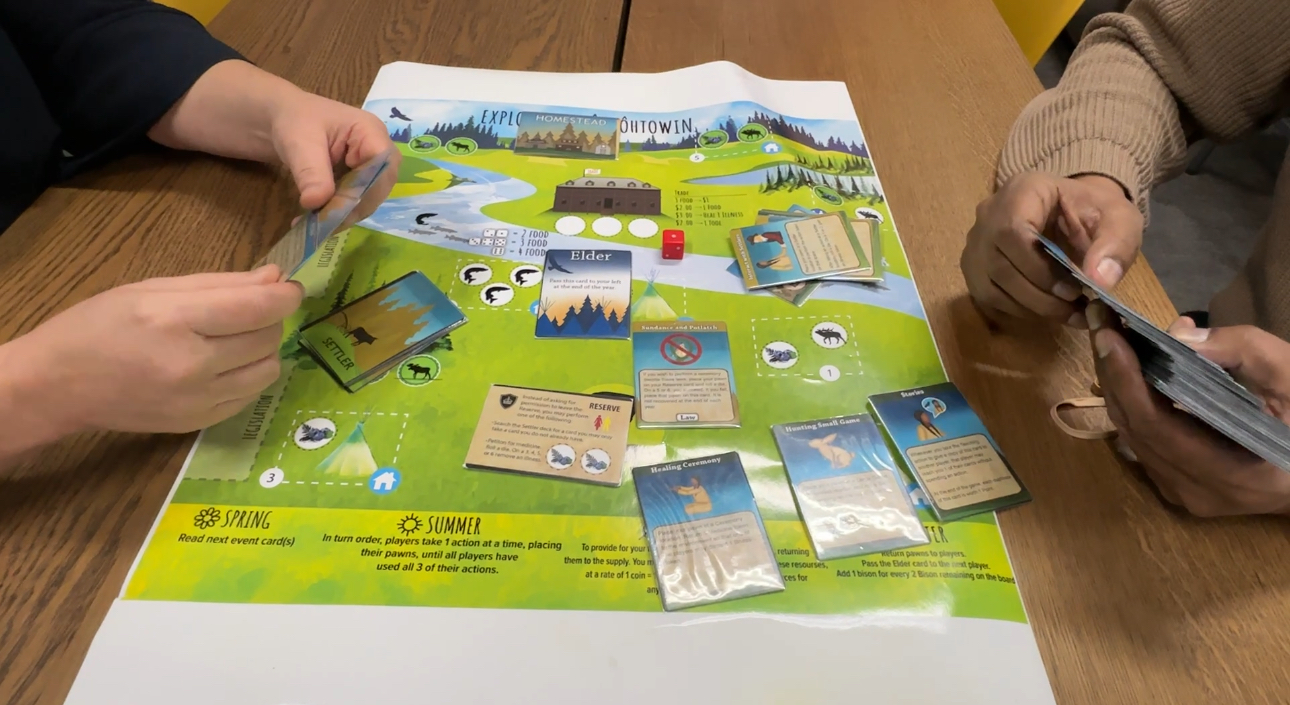
The treaty-focused project tells indigenous stories and reflects on the meaning and impact of the treaties signed between first nations and the Canadian government.
“What does it mean to be signatory or adherent of treaty 6? And what are the roles and responsibilities of the people who are party to the treaty on both sides,” said Sameer Singh, Founder of Edmonton Shift Lab.
‘Exploring Wâhkôhtowin’ helps answer these questions. It’s a non-profit initiative started by the Edmonton Shift Lab in 2016, in collaboration with the Yellowhead Indigenous Education Foundations and the Indigenous Knowledge and Wisdom Centre.
“The players start off as representing an indigenous family or an indigenous household living in treaty 6 territory here on the prairies so you go through the seasons of the game where you try and procure things like food, clothing, medicine.. And fairly soon into the game the settlers arrive, and all the intended and non-intended consequences of that migration occur,” said Singh.
“This is a way for people to look at policy, legislation right with our own backyard,” said Jodi Calahoo Stonehouse, NDP MLA and former Steward at Edmonton Shift Lab.
‘Exploring Wâhkôhtowin’ board game received global recognition and a grant of 20,000 US dollars from the United Nations alliance of civilizations through its prestigious intercultural innovation hub.
“We’re the only Canadian project having the United Nations recognized. This is really integral to the work and to the work that we have to do as a city, a town, a province as a country,” said Calahoo Stonehouse.
Exploring Wâhkôhtowin was the only Canadian project and one of 10 projects selected from about 1800 applicants for recognition by the intercultural innovation hub.
Stonehouse, who was a key collaborator on the initiative says she hopes that the project will increase awareness on issues like racism.
“The fact that this method is in fact a prevention and it’s an intervention that’s aimed at young people is really hopeful and that non-indigenous people have picked up this tool to reduce racism is really hopeful and inspiring.,” said Calahoo Stonehouse.
“Having a group that was mixed of indigenous and non-indigenous was really helpful. It was a way of bridging the divides between understanding and knowledge that existed before we came up with this game,” said Singh.
Exploring Wâhkôhtowin is already available for free online through tabletopia. The physical version of the board game will be distributed through pe metawe games, an indigenous owned game store.